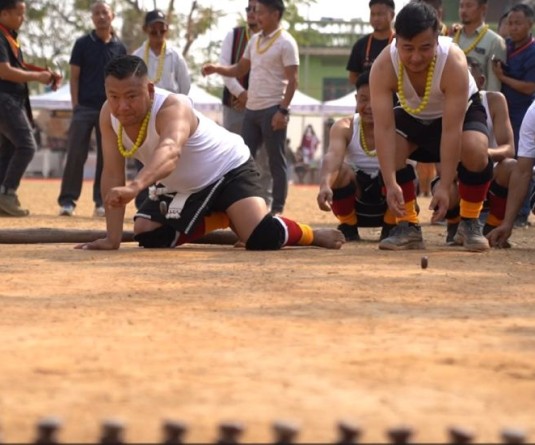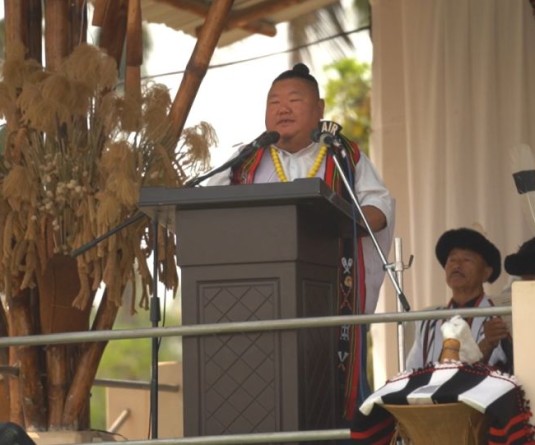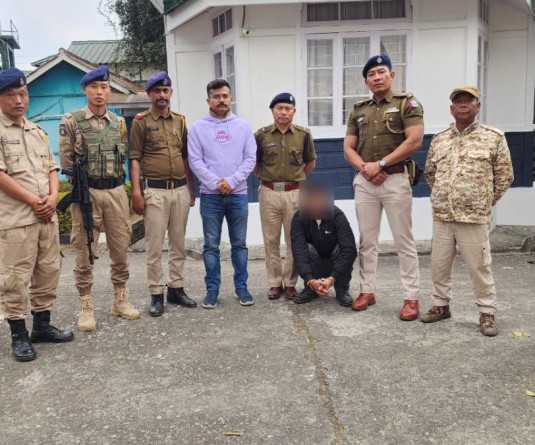
“This is the last cease-fire we have signed and a settlement must come within this period or else things will fall apart”
BANGKOK, NOV 3 (AGENCIES): NSCN General Secretary Thuingaleng Muivah says he is giving Delhi “only a few more months” to decide on his proposals for reaching a final political settlement – or else, he says, the talks will break down and his fighters will return to the jungles.
“No one should take the Nagas for granted,” he warned in an interview with BBC News correspondent Subir Bhaumik in the capital city of Thailand.
The ceasefire between the Indian government and the NSCN ends on January 31st next year.
“This is the last tenure of cease-fire we will have with India. Unless Delhi can reach a settlement within this date, they will have to take responsibility for the breakdown of talks,” Muivah told the BBC on Thursday. The NSCN has been negotiating with the Indian government since June 1997 to end the five decade old Naga political problem. Significantly, every time, the ceasefire has been extended by a year since the talks started, but in July this year, the NSCN refused to extend it beyond six months.
“We have made some concrete proposals and then we have revised them after taking into account the limitations of the Indian government. We have come down quite a bit from our demand for absolute sovereignty but if the Indians think they can just keep us on the conference table to buy time, we are not game,” Muivah said.
The NSCN General Secretary said his group has suggested a special federal relationship between Nagaland and India as the basis for a settlement.
“We have agreed to accept Indian currency and proposed joint responsibility for defence of Nagaland. As far as external affairs is concerned, we have agreed to leave it to India unless some issue involves the interest of Nagaland,” Muivah said. He said the NSCN will not be opposed to deployment of the Indian army in Nagaland but a “Naga force” should, in their opinion, take care of “internal security.”
But what is it that’s now holding up settlement after eight long years of negotiations and what is that issue that Muivah cannot come down? “Our demand for the unification of all Naga-inhabited territories is something we can never compromise on. The Indian government is wary of redrawing the boundaries of Nagaland, because it wants to please the Manipuris and the Assamese at the expense of the Nagas.
We cannot accept a settlement if the Nagas, who were divided first by the British and then by the Indians, are not reunited in one administrative unit,” said Muivah. Muivah argues that the Naga-areas of Manipur, Assam and Arunachal Pradesh are all “Naga-compact areas” – they were merely put under different administrations at different times in history. “How can the Manipuris and the Assamese expect to inherit these Naga territories which were integrated by force? They should be reasonable,” Muivah said.
The NSCN leader said former Indian Prime Minister Atal Behari Vajpayee accepted the “uniqueness of Naga history” – the fact that Nagas were never Indians or part of any Indian empire until the British forcibly conquered them.
“We want this historical appreciation to be the basis of a settlement. No one should expect the Nagas to accept Indian constitution as it is, but we want to be friends with India and we want a permanent relationship. It is now upto India to accept our proposals for a final settlement, but this is the last cease-fire we have signed and a settlement must come within this period or else things will fall apart,” Muivah said.






